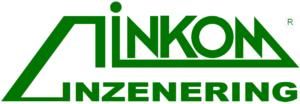The pursuit of excellence in any industry hinges on the capabilities and expertise of its workforce. In the realm of relocation assistance, the emphasis on employee training cannot be overstated. Investing in personnel not only fosters professional growth but also paves the way for improved customer satisfaction and streamlined operations. In an ever-evolving market, adapting to new challenges is crucial for success.
Furthermore, skill enhancement initiatives contribute significantly to skill development across all levels of the organization. As team members acquire new techniques and knowledge relevant to their roles, they become more competent and confident in their responsibilities. This transformation not only benefits the individuals involved but also uplifts the entire organization, as a well-prepared workforce is essential for delivering exceptional service to clients.
Ultimately, fostering a culture of continuous learning enables organizations to stay ahead of their competitors. By prioritizing education and expertise, businesses in the relocation assistance sector can ensure they meet and exceed the evolving expectations of their clientele. The positive ripple effects of such a commitment are far-reaching, impacting everything from efficiency to overall customer experience.
Enhancing Employee Skills for Better Customer Interactions
Investing in skill development is essential for achieving exceptional service standards. Equip staff members with the tools required to communicate effectively, fostering a positive relationship with customers. When personnel are well-trained, they exhibit greater confidence, leading to enhanced interactions that resonate with clients.
Professional growth opportunities are not solely beneficial for the workforce; they directly influence the perception of the company. Clients appreciate knowledgeable and attentive representatives who can address their inquiries and concerns with ease. Skill enhancement translates to responsive service, ensuring that every customer’s experience is memorable and satisfactory.
A culture of continuous development fosters a sense of belonging amongst team members. When employees feel valued through opportunities for advancement, they are more likely to invest in their roles, contributing positively to organizational goals. This commitment to excellence ultimately reflects in the overall client satisfaction and loyalty.
Implementing Safety Protocols Through Continuous Education
Ongoing education plays a vital role in the enhancement of safety measures within the moving industry. When workers engage in consistent skill development programs that focus on safety protocols, it not only fosters professional growth but also elevates overall service excellence. Regular updates on safety regulations, equipment handling, and risk assessment are crucial to minimize accidents and ensure a secure work environment.
Through systematic learning experiences, team members acquire the necessary tools to identify potential hazards and implement effective strategies to mitigate risks. This proactive approach to safety not only protects the staff but also reassures clients of the commitment to safe practices, thus contributing significantly to improved service standards.
Moreover, cultivating a culture of safety awareness through continuous education encourages open communication among team members, allowing them to share insights and experiences that further refine safety procedures. As employees become more skilled and knowledgeable, the overall capability of the organization enhances, paving the way for superior service delivery. For more information, visit https://powermoving247.com.
Adapting to Industry Changes with Ongoing Training Programs
As the logistics sector evolves, businesses must stay ahead of trends and innovations to maintain high standards. Continuous learning initiatives enable personnel to embrace new techniques and technologies, leading to improved operational efficiency and enhanced client interactions.
This commitment fosters a culture of skill development that not only assists staff in adapting to changes but also encourages professional growth. By equipping teams with the latest knowledge and practices, organizations can ensure that they remain competitive in a rapidly shifting environment.
Moreover, ongoing education helps to align workforce competencies with emerging industry needs, ultimately driving overall effectiveness. Employees who engage in frequent learning opportunities are better prepared to handle diverse challenges, which directly translates to superior outcomes for clients.
